Electrical Safety
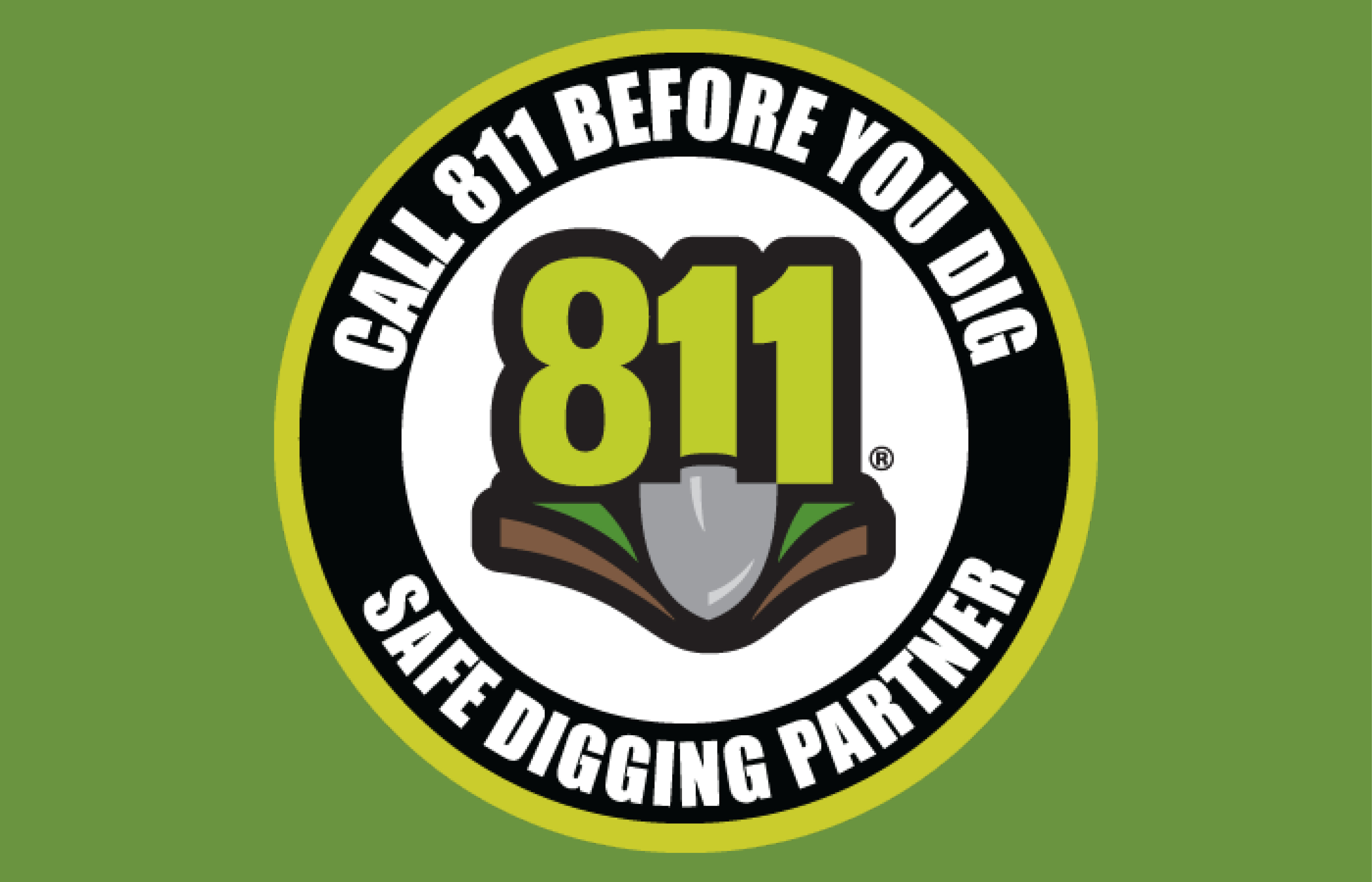
Call Before You Dig
Before doing any type of digging, call the Palmetto Utility Protection Service (PUPS) at 811 to have underground utilities located. South Carolina law requires that utility companies be given 72 hours (excluding weekends and holidays) to mark their lines. PUPS notifies Santee Cooper and other member utilities to locate their lines. For more information on PUPS or to submit an electronic locate ticket (e-notice), visit their website.
Portable Generator Safety
Most power outages are short-lived and do not warrant the use of auxiliary power, but some homeowners use portable electric generators during extended outages. To ensure safety of all involved, electric generators should be operated according to strict guidelines.
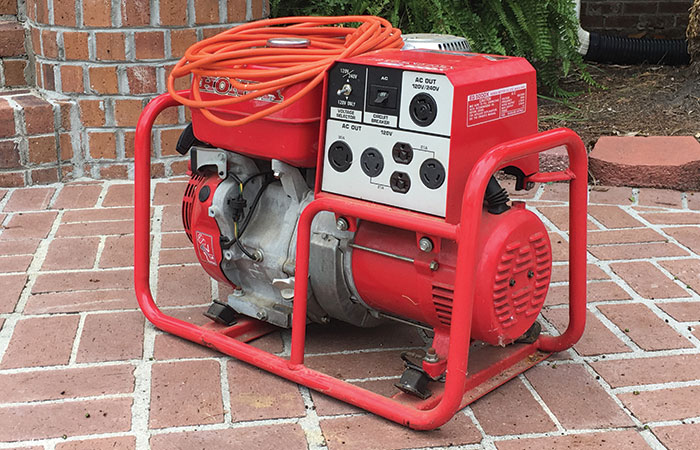
- Always follow the manufacturer's instructions completely.
- Never connect the portable generator to existing house wiring.
- Connect the generator directly to appliances. Refer to owner's manual for specific instructions on load capacity, approved power cords, etc.
- Operate generators outside because they emit harmful fumes and contain combustible fuel.
- Add fuel to the generator only when it is not running and has had time to sufficiently cool.
- Always properly ground the generator before operating. Refer to the owner's manual for specific instructions.
Downed Power Line Safety
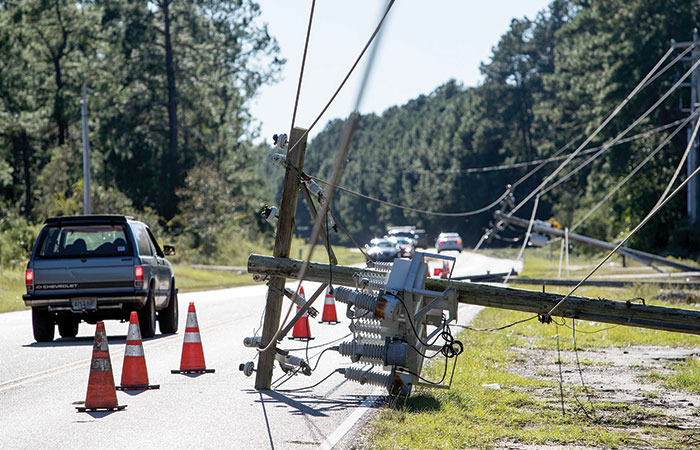
• Never touch a downed power line or anything the line is touching. The line could still be live even if it doesn't appear to be energized. Call Santee Cooper at 888-769-7688 for assistance.
• Never try to move a downed power line.
• Never drive over downed power lines. If a power line makes contact with your vehicle as a result of an accident, do not get out. If it is necessary to exit, avoid touching the vehicle and the ground at the same time. Shuffle your feet rather than taking large steps to minimize the chance of electricity flowing through the ground and then through you.
Overhead Power Line Safety
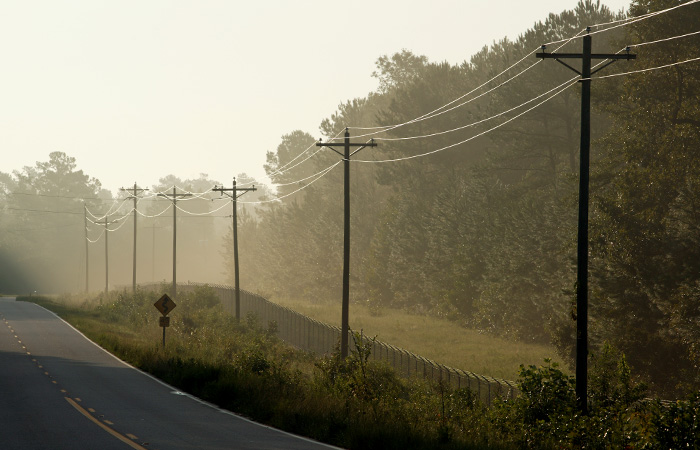
• Overhead power lines are usually bare and not insulated. When using or carrying long objects (e.g. ladders, pruning tools, swimming pool poles, antennas, pipes, etc.) be aware of overhead power lines, and do not allow objects to touch them.
• Always check for overhead power lines before launching a sailboat or raising its mast.
• Never climb trees near overhead power lines.
• Kites, model airplanes, drones, etc., should never be flown near overhead power lines. Do not attempt to retrieve objects that get caught in power lines, and always use non-metallic string or cord to fly kites.
• Never climb utility structures (such as poles) or enter substations.
Underground Power Line Safety
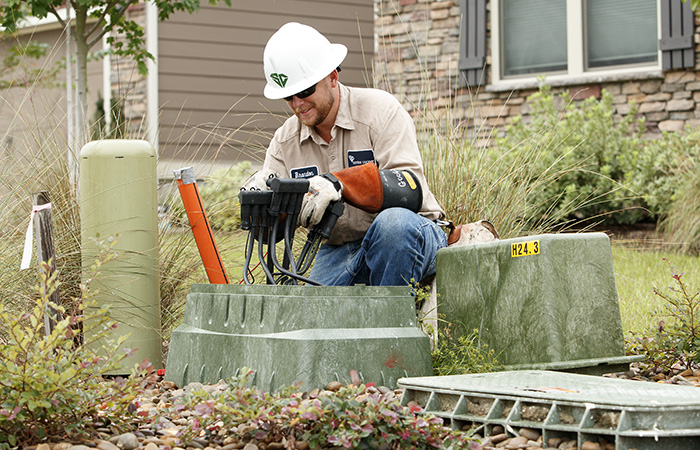
In areas with underground power lines, there is often pad-mounted equipment located along rights-of-way. Unless it's been damaged, this equipment is normally safe. Regardless, do not allow children to play on or around these objects. Stay away from damaged or open equipment and notify Santee Cooper immediately by calling 888-769-7688.
Santee Cooper needs to have direct access to the equipment in the event of a power outage or to perform maintenance. If you plant shrubs or other vegetation nearby, please allow 10 ft. of space on the sides with doors and 3 ft. of space on the other sides. If you have any questions, contact us.
Contractor Safety
Power lines can be deadly. Before moving a ladder, or working on a roof or with lifting equipment, search carefully for overhead power lines, poles and wires. Look for lines that may hidden be by trees or buildings.
Make sure everyone at the job site knows about nearby overhead and underground utilities and where they are located.
Assume all lines are energized and potentially dangerous.
Stay at least 10 feet away from overhead power lines carrying up to 50 kV. Cranes and derricks must remain at least 20 feet away from lines up to 350 kV, and 50 feet away from lines greater than 350 kV. As voltage increases, clearance distances also increase.
If a power line is downed near you, shuffle your feet in small steps to get at least 30 feet away so you don't get shocked. Warn others to do the same.
If you’re in danger of the line falling or causing a fire, jump as far away from the equipment as you can and land with both feet together. Hop or shuffle away from the equipment with your feet together to reduce the risk of electric shock. Call 911.
Always call 811 before you dig or excavate in any way. They will ensure you will not be in danger of hitting power lines or other utilities.
The American Public Works Association (APWA) created uniform color-coded markings for underground utilities. Color charts are usually available when you call 811.
APWA Color Codes:
![]() Electric Power Lines
Electric Power Lines
![]() Gas, Oil, or Steam
Gas, Oil, or Steam
![]() Communication Lines, Cables, or Conduit
Communication Lines, Cables, or Conduit
![]() Potable Water
Potable Water
![]() Reclaimed Water, Irrigation, and Slurry Lines
Reclaimed Water, Irrigation, and Slurry Lines
![]() Sewer and Drain Lines
Sewer and Drain Lines
![]() Temporary Survey Markings
Temporary Survey Markings
![]() Proposed Excavation
Proposed Excavation
The tolerance zone is a distance on each side of a utility that allows for a margin of error if the locator marks are slightly off. It also provides a buffer zone to prevent damage from digging. Do not use power-digging equipment within this zone. It will put you at risk of hitting the utilities.
Even a small cut in a line can result in a fire or health hazard. Call 911 immediately. Move equipment away from the line and keep others away.